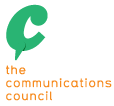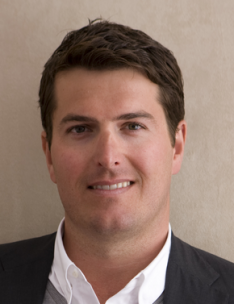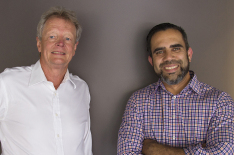Can Jaimes Leggett help the Communications Council beat its existential crisis?
 Jaimes Leggett is taking over as chairman of the Communications Council at a time when the industry body has a lot of soul searching to do, argues Alex Hayes.
Jaimes Leggett is taking over as chairman of the Communications Council at a time when the industry body has a lot of soul searching to do, argues Alex Hayes.
I recently asked a creative agency CEO to describe his day-to-day life at the moment. His reply: “A clusterfuck. Everything is changing around me and it’s hard to keep up.”
In times of change people look for leadership, and that’s where the Communications Council should come in. The problem is, it hasn’t been.
The problem is the Comms Council itself hasn’t shown how it is adapting to the emerging new world order, and that has caused a lot of its members to question why they pay their pretty hefty annual fee, and a few to leave or join other industry groups. The problem is it’s not alone amongst our industry bodies.
But the announcement that M&C Saatchi CEO Jaimes Leggett is taking over as chairman from former Droga5 boss Sudeep Gohil could prove to be a pivotal moment in the organisation’s existence.
Gohil’s departure as chairman six months before his three-year term came to an end is not surprising, given he is no longer the head of an agency himself since Droga5 Sydney was shuttered. That the job fell into the lap of Leggett, the domineering CEO who has transformed the fortunes of M&C since taking the reigns there in March 2013, is probably not serendipity.
In those two-and-a-half years he has assembled a team and shaped an agency which is arguably Australia’s most exciting creative force at the moment (judging by the number of awards it has won in the last year on the back of its Optus Clever Buoy and Ricky Gervais work, which was created in partnership with Emotive) – even if we haven’t always seen eye to eye on the idea of innovation.
What the Comms Council needs to do is work out what it is it stands for, and then do something tangible. God knows there are enough talking shops in the industry.
Take for example the issues around a lack of female leadership.
Despite numerous initiatives including the ‘Champions of Change’ program where male CEOs are lectured on the importance of gender balance in the workplace the industry doesn’t seem any closer to finding tangible solutions.
 Working groups, reports and recommendations are all very well, but without action and meaningful dialogue I can’t see how things will change. And most worryingly neither can a lot of women I speak to in the industry.
Working groups, reports and recommendations are all very well, but without action and meaningful dialogue I can’t see how things will change. And most worryingly neither can a lot of women I speak to in the industry.
While this is the responsibility of the agencies themselves it is an issue which will only truly be resolved when there are some clear guidelines and procedures in place.
At the beginning of the year I sat down for a hangout with (then) newly minted Comms Council CEO Tony Hale. We had a good chat – he’d only been in the job for a few days but was open and honest about some of these challenges here.
https://www.youtube.com/watch?v=fwvFL581kQU
One he mentioned with urgency was getting some form of industry agreement around paying for pitches – that is getting more brands to actually compensate agencies for their time.
Often these payments are token compared to the costs that go into a pitch, but what it does do is stop marketers from kicking the tyres in quite the same way on different agencies, and get more serious about their shortlisting.
Add to that the small question of agencies getting paid correctly, and behaving ethically – there are some nice codes of practice in place but they very rarely seem to affect real-world behaviours.
Meanwhile creative agencies, the heartland membership base of the Comms Council, are finding it increasingly difficult to compete.
I can’t remember the last time I spoke to an agency boss who didn’t admit they have an eye on adding some other offering to their armoury. Indeed M&C has thrown its hat into the ring on a couple of media pitches, although it has yet to win clients in that space.
But the fact is there’s a race to the middle – creative agencies want their slice of the digital, media and PR pies, but equally media agencies fancy themselves as able to more easily encroach on the creative space, especially where it comes to areas like content creation and social media – which lie in an unclaimed no man’s land in the industry.
One agency CEO I spoke to told me he wanted more training and guidance in skilling up his staff. He pointed to the deal with the UK’s IPA as a step in the right direction, but admitted the Comms Council needs to show it is doing more for the industry in this space.
The Comms Council is very far from the only game in town. There are numerous bodies competing for the same membership dollars and promising returns.
ADMA has been the most aggressive mover in the market in recent years, with CEO Jodie Sangster rebranding the association and pivoting it to encompass creative agencies. Indeed there are a few who have dropped their Comms Council memberships in favour of an ADMA listing.
The area I think they’re providing the most differentiation is actually bringing marketers into these conversations. Their training courses and events bring together the agencies with the people who actually pay the bills – and they are expanding in that space.
While the Comms Council can focus exclusively on agency problems it rather lacks the moral authority to compel marketers to do more to hold up their end of the bargain over things like paying for pitches – simply because they are not inside the tent.
If there’s one thing the Comms Council, and many of our industry bodies, have been guilty of it’s going AWOL when the big issues and scandals come knocking. I hadn’t realised there was such a thing as head in the sand activism – yet some of our industry leaders seem pass masters at it.
Where there are problems there are opportunities as well, but shying away from talking about them isn’t going to help anyone – least of all the industry.
I think in the next couple of years we’re going to see some consolidation in the industry body space – do we really need a dozen or more competing member groups fighting for ever shrinking corners of the industry? Surely a couple of strong and well-funded bodies would serve us better.
With the appointment of Leggett the Comms Council has an opportunity to make sure it is one of the survivors. He’s a very different personality from Gohil, who never really embraced the limelight the role can provide, and I expect he will be open and upfront about these challenges.
The fact he’s come in unelected means he’s not tied to any particular path, and can ask some of the honest questions that need to be put to the Comms Council. What happens in that time might also help him decide whether he wants to take on the demanding job for three years when the Annual General Meeting rolls around next May.
The Comms Council in principle is an excellent idea. Let’s see if they can make it useful in practice.
- Alex Hayes is editor of Mumbrella




Insightful article Alex, but it’s funny to see ‘domineering CEO’ in a paragraph about the new Comms Council leader and then concern about ‘lack of female leadership’ a couple paragraphs later.
Would you have described a woman as a ‘domineering CEO’ if the intention was complimentary?
Thanks Montague,
And if the cap fit, I would.
Cheers,
Alex – editor, Mumbrella
The Comms Council needs a good kicking, as does the APG.
I hope Jaimes is wearing his soccer boots.
;P